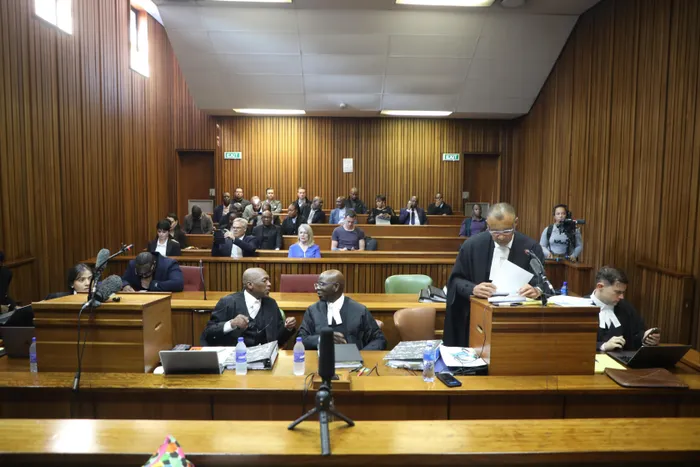DA on why it wants ‘rigid racial quotas’ removed

The DA challenged the Employment Equity Amendment Act at the Gauteng High Court, Pretoria, arguing that the law would worsen the unemployment rate.
Image: Oupa Mokoena / Independent Newspapers
AMENDMENTS to the Employment Equity Act (EEA) were replacing a context-sensitive approach where employers set their numerical targets for employment equity, with a rigid, one-size-fits-all system of minister-determined targets.
The DA argued before the Gauteng High Court, Pretoria, on Tuesday that this violates Section 9 of the Constitution, which governs equality and affirmative action. While Section 9(2) permits affirmative action, it must be approached cautiously and not unduly infringe on dignity or establish absolute barriers, the party said.
The DA is challenging the constitutionality of section 15a of the Employment Equity Amendment Act which seeks to introduce numerical targets for the representation of black people, women and people with disabilities in companies with more than 50 employees.
Advocate Ismail Jamie SC representing the DA, argued that rigid racial quotas are harming employment opportunities.
Jamie said that a woman looking for work in the financial sector in Gauteng can only be employed if she is coloured while an Indian woman in the financial sector would struggle to find employment under the draft numerical targets in the Employment Equity Act (EAA).
Attorneys representing the DA said the party is challenging 'job-killing quotas'.
The DA contends that the amendments to the EEA replace a context-sensitive approach with a rigid, one-size-fits-all system of minister-determined targets. Non-compliance could result in severe penalties.
The DA said this violates Section 9 of the Constitution, and that the Amendment Act's mandatory targets are blunt and rigid, potentially amounting to unconstitutional quotas.
Furthermore, the DA claims the Amendment Act is entirely invalid due to incorrect tagging during the parliamentary process. Bills substantially affecting provinces should follow Section 76 of the Constitution, but this Bill was passed under Section 75.
"The targets are so rigid or so rigidly applied that they constitute a quota, that is not constitutional," Jamie said, adding that it also affected the dignity of those who were affected.
He said that different employers in a particular sector have different employment needs based in their local markets.
"Section 85a permits them to lump all these employees together and force them to hire the same specified ratio of various race and gender combinations, which is what it does."
He said this particular piece of legislation 'has the potential to create an absolute barrier for members of particular racial groups in a particular area. This is fundamental to our challenge," Jamie said.
The party, through its lawyers, argued that the EEA should be declared unconstitutional as it was tagged under Section 75 and not Section 76.
"What was a careful, considered approach to the impression of achieving world representativeness has now been turned into one where targets are set by the national minister," Jamie said.
The hearing continues with lawyers representing Minister of Employment and Labour Nomakhosazana Meth expected to argue that the DA's challenge is an attempt to reverse progress made since 1994 and maintain the unfair status quo.
The ANC said the DA’s campaign to label the legislation as “anti-merit” was a willful distortion of reality.
"It ignores the brutality of apartheid, which for centuries denied Black South Africans the right to land, quality education, employment, and dignity. In such a context, talking about 'merit' without transformation is an insult to the millions who remain excluded.
"The DA's persistent campaign against transformation reveals its dangerous agenda to entrench the privileges of the past and preserve the apartheid-era economic status quo under the guise of constitutionalism. It is a betrayal of the democratic gains we have made and a slap in the face of the Black working class, women, and the youth who continue to bear the brunt of inequality and unemployment."
Cape Times